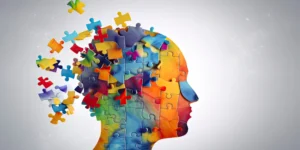Addiction's Grip Often Shadows Hope, Whispering Despair
How does substance use disorder elevate the risk of suicide, and what factors contribute to this increased vulnerability among individuals struggling with addiction?
When someone dies by suicide after years of battling addiction, people often say, “We never saw it coming.” But if you’ve ever lived in that dark intersection, between wanting to stop using and wanting to stop existing, you know it doesn’t come out of nowhere. It’s a slow collapse, disguised as functioning.
Addiction and suicide aren’t separate tragedies. They’re partners in silence. One numbs the pain, the other ends it. Studies show that people with substance use disorders are up to 14 times more likely to die by suicide than the general population. But statistics don’t tell the story. It’s not just about substances, it’s about people trying to survive unbearable feelings with the only tool they know: escape.
At We Do Recover, we’ve seen this reality every day. Families come in looking for rehab, but beneath the addiction there’s often a deep well of despair, shame, or trauma that’s been driving the spiral for years.
The Emotional Engine Behind Addiction and Suicide
Addiction is often a form of self-harm in slow motion. Each relapse, each binge, each lie told to keep the secret alive chips away at self-worth until hopelessness takes over. The same feelings that drive suicidal thinking, shame, isolation, guilt, emptiness, are the very emotions addiction creates and sustains.
People don’t always want to die. Most just want the pain to stop. Addiction offers temporary relief, the illusion of silence, but it always comes back louder. And when the numbness fades, the guilt of “what have I done again?” takes its place. That’s how the cycle tightens. Addiction isn’t just a chemical dependency, it’s emotional suffocation.
This is why recovery can’t only be about sobriety. Until we address the despair that sits beneath the surface, we’re only treating half the illness.
How Addiction Changes the Brain
It’s not weakness that keeps people stuck. It’s wiring.
Addiction rewires the brain’s reward system, the nucleus accumbens, amygdala, hippocampus, and frontal lobe, all areas responsible for emotion, impulse control, memory, and decision-making. Over time, the brain’s ability to feel pleasure naturally diminishes. Joy, motivation, even love, all become muted.
At the same time, the frontal lobe, which helps regulate judgement and impulse control, shrinks. This is the same region implicated in suicidal behaviour. In other words, the addicted brain and the suicidal brain share the same malfunction, they both lose the ability to imagine a future.
But there’s hope. The brain’s plasticity, its ability to heal, means recovery is possible. With abstinence, therapy, and proper support, those neural pathways can regenerate. The mind that once only sought death can learn to seek life again.
When Trauma Is the Trigger
Ask anyone in recovery how their addiction began, and somewhere in their story, you’ll hear the word hurt. Childhood neglect, sexual abuse, grief, violence, or emotional abandonment, these are not excuses, they are origins.
Trauma teaches the brain that safety doesn’t exist. The nervous system remains stuck in fight-or-flight, flooded with cortisol and fear. Drugs and alcohol, for a brief moment, turn that noise down. That relief feels like peace, until it turns into dependence.
Unresolved trauma isn’t just a backstory to addiction. It’s the ongoing reason why recovery is so hard to maintain and why suicidal thoughts often accompany it. The body remembers what the mind tries to forget. Healing means facing that pain with professional help, not hiding from it behind another drink or dose.
The Hidden Suicide Epidemic
Research shows that 65% of suicide victims had an alcohol use disorder. Among those with cocaine addiction, 45% had attempted suicide. Intravenous drug users are 14 times more likely to attempt suicide than non-users. The numbers are shocking, but they’re not surprising to anyone who’s lived it.
Because behind every number is a story, someone whose relapse was misread as recklessness instead of despair, someone who overdosed but didn’t mean to die, someone who reached out too quietly to be heard.
We often talk about addiction as a criminal issue, but in reality, it’s a public health emergency. These deaths are not statistics, they are symptoms of a world that punishes pain instead of treating it.
Why Rehab Is About Survival
A good rehab program doesn’t just help people get clean. It keeps them alive.
Detox is only the beginning. Once the substances are gone, what’s left is the mind, raw, unfiltered, and vulnerable. Without proper mental health care, the risk of suicide skyrockets in early sobriety. That’s why rehabilitation must address the whole person, medically, psychologically, and socially.
At We Do Recover, we follow a biopsychosocial model. That means treating addiction as a disease that affects the brain, the body, and the environment around the person. Our multidisciplinary team, psychiatrists, psychologists, social workers, occupational therapists, registered counsellors, and nurses, work together to rebuild what addiction has dismantled.
Recovery isn’t about punishment, it’s about protection. Every intervention, therapy session, and support group is a barrier between relapse and suicide.
Recognising When Someone Is Close to Breaking Point
The signs are often there, but subtle.
- Withdrawal or isolation after a relaps.
- Reckless mixing of substances.
- Expressions of guilt or hopelessness.
- Giving away possessions.
- Sudden calm after prolonged distress, a red flag that a decision has been made.
If your gut tells you something’s wrong, listen to it. Ask the question we’re so afraid to ask: “Are you thinking about ending your life?” You won’t put the idea in their head, you might pull them back from the edge.
The Language of Hope
You don’t need to be a professional to help. You just need to be present. Try saying:
- “You don’t have to be okay right now.”
- “I’m not scared of what you’re feeling.”
- “Let’s get you some help.”
These words don’t fix everything, but they can buy time, and time saves lives. Silence, on the other hand, kills. Addiction and suicide thrive in secrecy. Talking about them openly strips them of their power. The more we speak about pain without judgement, the more we create safety for those who think no one would understand.
A Message to Those Who Feel Done
If you’re reading this and you’re using just to survive the day, please know, you’re not broken. You’re human. The pain you feel isn’t proof that you’re weak, it’s proof that you’ve survived things most people couldn’t imagine.
Addiction lies to you. It tells you there’s no way out. But that’s not true. There’s help, there’s treatment, and there are people who’ve been where you are, and lived to tell the story. Reaching out doesn’t make you a burden, it makes you brave. The world is better with you in it.
Recovery doesn’t erase the past, it teaches you how to live alongside it. Every therapy session, every meeting, every moment you choose not to use, that’s strength. Every time you get back up, you’re reprogramming your brain toward life.
The opposite of addiction isn’t sobriety; it’s connection.
The opposite of suicide isn’t happiness; it’s hope.
And both begin with the same simple act: reaching out.
At We Do Recover, we believe no one should face addiction or suicidal thoughts alone. Whether you’re struggling yourself or watching someone you love slip away, there’s always another step you can take, and another hand ready to help you take it.
Because sometimes, saving a life starts with just four words: “I’m here for you.”

People Trust Rehab Advertising More Than Their Own Instincts Choosing a drug addiction rehab is…

Drug addiction is a terrible disease of mental obsession and physical compulsion for the patient…

For many people living with ADHD, a drink at the end of the day doesn’t…








